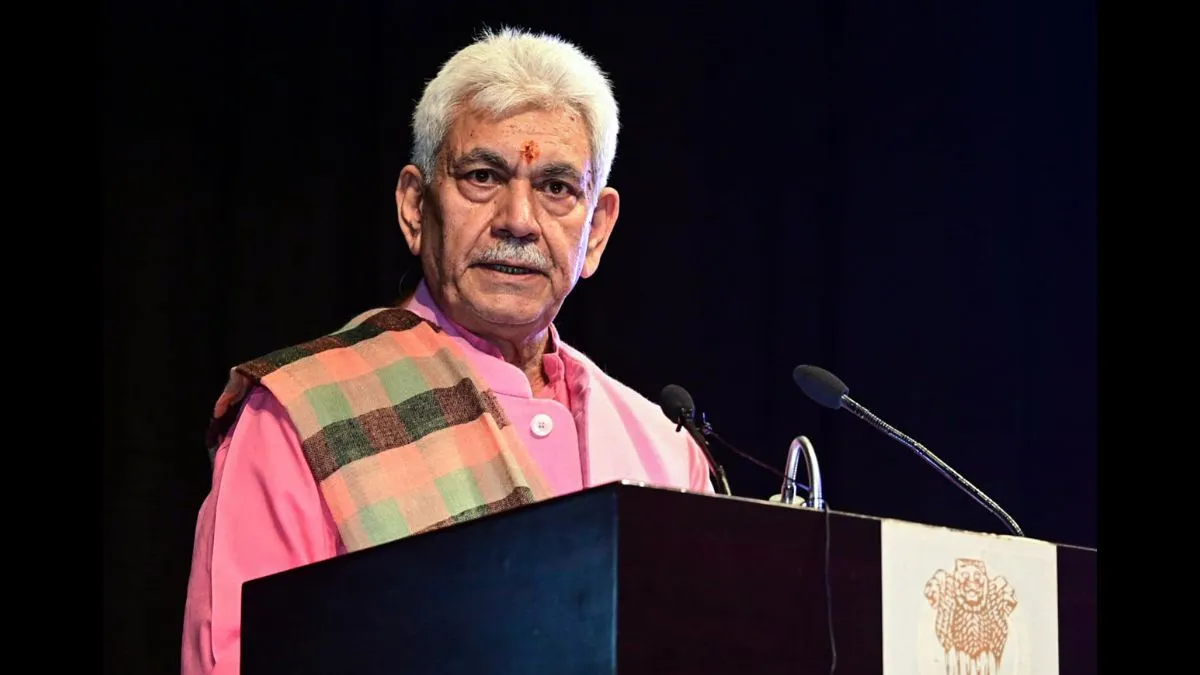The recent meeting between Jammu and Kashmir Lieutenant Governor Manoj Sinha and the families of terrorism victims highlights a critical issue: the long-standing marginalization and suffering of these families in the region. For decades, these families, scattered across North, Central, and South Kashmir, have endured unimaginable loss and hardship, their voices largely unheard amidst the ongoing conflict. The meeting, held at Raj Bhavan, provided a platform for these families to share their harrowing experiences and plead for assistance, underscoring the urgent need for comprehensive support and redressal of their grievances. The Lieutenant Governor’s commitment to addressing their concerns marks a significant step, but the long road to justice and rehabilitation remains. This article delves into the plight of these families, the government’s response, and the path forward to ensure their well-being and integration into the mainstream.
The Plight of Terrorism Victims’ Families in Jammu and Kashmir
The families who met with Lieutenant Governor Sinha represent a silent majority, bearing the brunt of decades-long terrorism in Jammu and Kashmir. Their loved ones were brutally murdered, leaving behind a legacy of trauma, grief, and economic insecurity. The narratives shared during the meeting painted a grim picture of families struggling to cope with the loss, facing social stigma, and often lacking access to essential resources and support systems.
Years of Neglect and Marginalization
These families have been largely excluded from the developmental process, their needs consistently overlooked. The trauma extends beyond the immediate loss of loved ones; it encompasses economic hardship, social isolation, and the psychological toll of living under the shadow of violence. This neglect is compounded by a lack of effective mechanisms to provide them with appropriate support, including financial assistance, psychological counseling, and legal aid.
Demand for Justice and Rehabilitation
The families’ primary demands revolve around securing justice for the loss of their loved ones and obtaining adequate rehabilitation. This includes seeking legal action against perpetrators and working towards creating a secure environment. Many family members also highlighted a need for financial assistance, job opportunities, and access to education and healthcare, emphasizing the immense economic burden they face. Addressing these multifaceted issues is crucial for fostering a sense of security, stability, and hope amongst these communities.
Government’s Response and Commitment to Support
Lieutenant Governor Manoj Sinha’s meeting with the families symbolizes a significant shift towards acknowledging their plight and addressing their concerns. His pledge to ensure justice, welfare, and rehabilitation for these marginalized communities is a crucial step in acknowledging their long-standing suffering. The emphasis on supporting families affected by terrorism and dismantling the terror ecosystem reflects a holistic approach to addressing this critical issue.
Actionable Steps Towards Justice
Beyond expressing empathy, the government needs to translate its commitment into actionable steps. This includes initiating investigations, ensuring prosecution of terrorists and their backers, and creating effective mechanisms to support the families’ diverse needs. Effective implementation requires a multi-pronged approach involving relevant government agencies, NGOs, and local communities.
Neutralizing Terror and Fostering Peace
The Lieutenant Governor’s remarks emphasizing the commitment of security forces to completely neutralizing terror groups and ensuring that targeted families are provided with support underscores the importance of tackling the root causes of the conflict. This involves maintaining robust security operations, alongside investments in social harmony initiatives and rehabilitation programs designed to address the underlying factors contributing to the spread of violence. The successful dismantling of the terror ecosystem is directly connected to the welfare and safety of the families who have suffered its devastating consequences.
Path Forward: Towards a Just and Inclusive Future
Moving forward, creating a just and inclusive society for the victims of terrorism and their families requires a comprehensive, long-term strategy. This includes addressing the socio-economic needs of these communities, focusing on job creation, healthcare provision, and educational opportunities, and offering mental health services. Furthermore, actively promoting community engagement, fostering dialogue, and tackling discrimination are essential elements of creating a truly inclusive environment.
Empowering Affected Families
Beyond material support, empowering these families requires fostering their active participation in local governance and development initiatives. Creating spaces for their voices to be heard and their grievances to be addressed fosters trust and reconciliation. By supporting local communities and involving family members in the process of rebuilding, trust in government actions can be built over time.
Strengthening Support Systems
Effective coordination between various government agencies and NGOs is critical. Dedicated units, task forces, or help desks are vital for streamlined support delivery, ensuring that assistance reaches those most in need. Regular evaluation and modification of support programs are necessary to adapt to changing circumstances and effectively meet the needs of these families.
Takeaway Points
- The suffering of terrorism victims’ families in Jammu and Kashmir highlights a critical need for long-term support and rehabilitation.
- Lieutenant Governor Manoj Sinha’s meeting represents a significant step toward addressing this issue, with a commitment to justice, welfare, and rehabilitation.
- A multifaceted strategy is needed to address the families’ diverse needs – including economic support, mental health services, legal assistance and socio-economic integration.
- Building trust, fostering inclusivity, and involving these families in development initiatives are crucial for long-term progress. A holistic approach integrating security measures, social harmony and sustainable economic opportunity will play a vital role in addressing the ongoing suffering.




